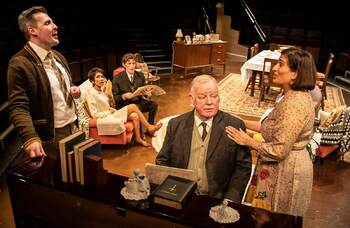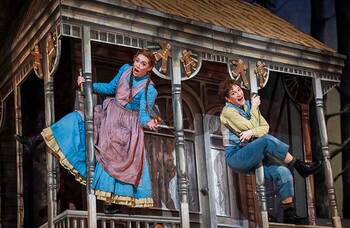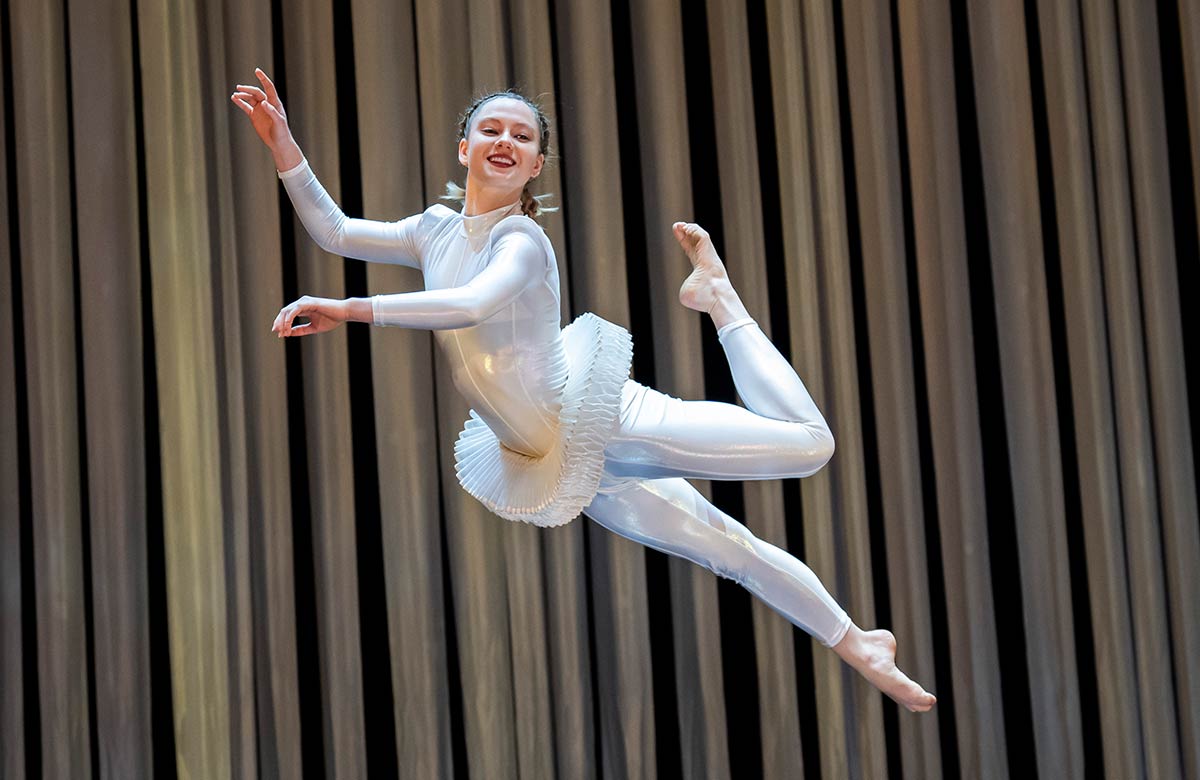Shirley Valentine review

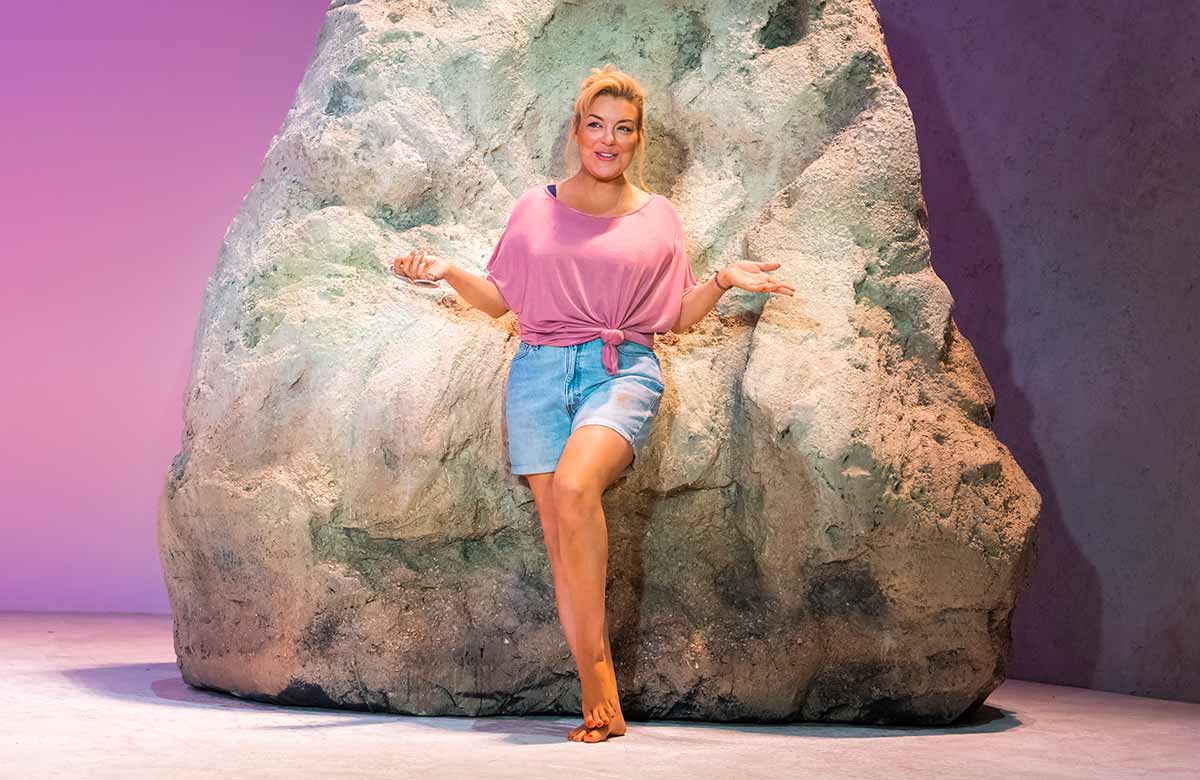
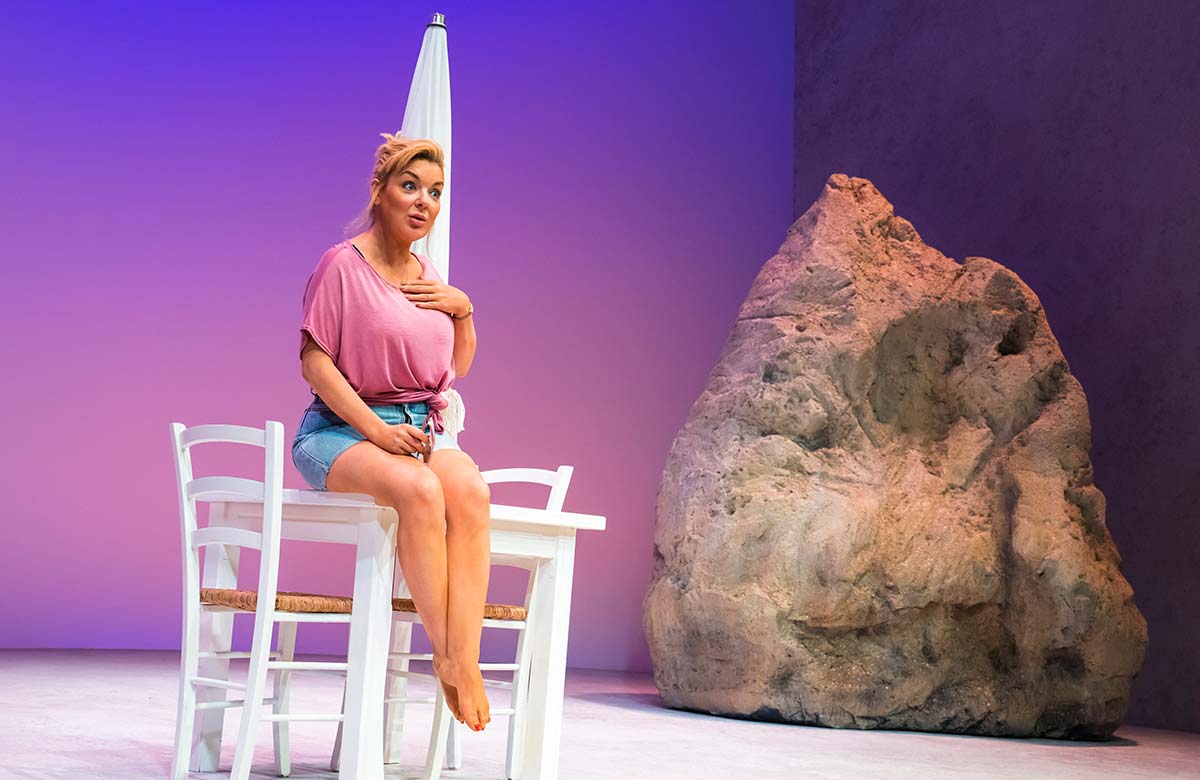
Sheridan Smith reanimates Willy Russell’s well-worn monologue
By now we know her well: Shirley, the Liverpudlian housewife who escapes domestic drudgery on a holiday to Greece and sets her sights on a new future of wider, sunnier vistas. Willy Russell’s monologue was first seen in 1986 and arrived in the West End, starring Pauline Collins, two years later. Before the end of the decade Collins had reprised the role on Broadway and on film, and there have been numerous revivals of the play since. This time around, in an eminently capable production by Matthew Dunster, it’s Sheridan Smith wielding the chip pan and the suntan oil – and she could hardly be more radiantly charming, nor display a defter, more persuasive command of Russell’s blend of sentimentality and wry humour. Yet it just doesn’t feel like quite enough.
This is very much a period piece, and Paul Wills’ designs and Lucy Carter’s lighting have a cartoonish brightness. The kitchen, where we find Shirley making her husband’s dinner and talking to the wall in the absence of any sympathetic human ear, is decorated in medicine-pink and bilious blue-green. It matches Smith’s sweatshirt and trousers and, later, her hideous going-away ensemble, complete with batwing sleeves and shoulder pads. The upper storey of the house is mapped out in greyish bas-relief – a poky bathroom, a padded headboard; in Greece, the colours shift to richer shades of sea, sky and sunset.
Even allowing for the 1980s context, the more dated attitudes in Russell’s writing jar. There will surely be few modern 42-year-olds who can relate when Shirley frets that she should be “applying for a bus pass and a Zimmer frame”, or wonders why no man has ever been capable of locating her clitoris. Yet the best lines still zing: there’s a choice description of a bitchy neighbour whose lips are so permanently pursed that when she talks it’s “as if she begrudges you the breath”. Smith makes the most of every word, slapping sliced white bread on to a plate for emphasis, turning the word “taramasalata” into a comic aria, and inhabiting each memory, so that we see the effervescent girl she once was, as well as the secretly disappointed, cheerfully coping wife and mother she’s become.
Dunster keeps it all cooking nicely, sometimes literally – we can actually smell the Crisp ’n Dry. And Smith has no trouble winning our hearts. Women like Shirley – working class, middle-aged – are still routinely overlooked, on stage and off. But watching her follow her well-worn path of self-discovery again, I couldn’t help but be reminded of another Russell creation – the mother of Educating Rita’s titular heroine who, at a pub sing-song, reflects desolately that “there must be better songs to sing than this”. There are fresher ways of telling Shirley’s story. There are better plays than this.
More Reviews
Recommended for you
More Reviews
Recommended for you
Most Read
Across The Stage this weekYour subscription helps ensure our journalism can continue
Invest in The Stage today with a subscription starting at just £5.99



